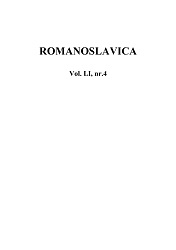Concepte bizantine în interpretare rusă. Translatio imperii și simfonia
Byzantine concepts in Russian interpretation. Translatio imperii and symphony
Author(s): Iuliana NițescuSubject(s): History of Church(es), Political history, Politics and religion, 13th to 14th Centuries, 15th Century, 16th Century, Eastern Orthodoxy, Sociology of Religion, History of Religion
Published by: Editura Universităţii din Bucureşti
Keywords: translatio imperii; symphony; Christian political theology; Moscow-third Rome; regalia; Ivan the Terrible;
Summary/Abstract: Within the medieval political framework, the Christian and roman elements are crucial for the recognition of the imperial status. This study aims to describe the Russian interpretation of two byzantine concepts related to these elements, namely translatio imperii and symphony. We argue that these concepts were integrated as an inherent part of the Russian culture, both by the political and ecclesiastical powers, and contributed to shaping the Russian understanding of the divine origin of the tsars’ power. In the attempt to place Russia in the sacred history of the world, a number of texts are developed in which Russia is portrayed as the ultimate destination for the imperial regalia, following the prophecy of the four empires from the biblical book of Daniel. By claiming the transfer and ownership of regalia, Russia becomes the final Christian empire and a new Rome. But as the power of the sovereign increases, the Church uses the concept of symphony between the two powers, in order to maintain its autonomy. The development of these concepts will be analyzed by comparing different written sources from the period.
Journal: Romanoslavica
- Issue Year: LI/2015
- Issue No: 4
- Page Range: 251-267
- Page Count: 17
- Language: Romanian

